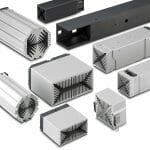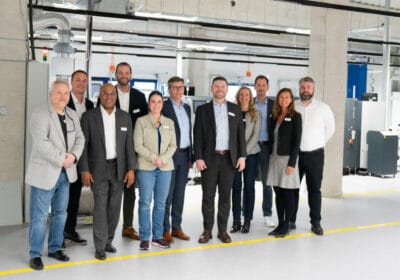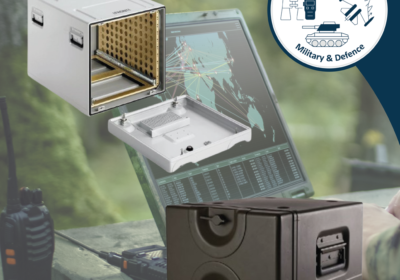~ Creating more hours in the day with supply chain improvements ~
Research has found that 75 per cent of millennials list “too time-consuming” as the main reason they avoid phone calls. Phone calls are a positive and valuable tool, but unnecessary administrative ones can be a distraction that takes employees away from productive work. As businesses get back to normal activity, manufacturers can cut through unproductive noise and reduce avoidable admin to create more time to innovate. Here Chris Billinge, business development director at vendor managed inventory (VMI) specialist TFC, discusses how supply chain improvements can create more hours in the day.
Now, more than ever, manufacturers are doubling down to focus on the core of what they do — being operational, innovative and productive to build back better and strengthen British and Irish industry. As a part of this, manufacturing businesses are looking for ways to work smarter, by removing unproductive noise from processes to enable employee productivity.
All businesses have limited resources to invest, and all employees have limited time in their day. Interestingly, while studies have shown that British workers put in the longest hours in the EU, our productivity does not top the charts. How then, can we achieve more in the time we have?
Reducing the noise
The answer lies in reducing inefficiencies, something all manufacturing leaders are well-versed in. Since the 1980s, Britain’s approach to manufacturing has changed drastically. Gone are the days where the progress-chasing department was responsible for scouring a site to collect and move components. We now have enterprise resource planning (ERP) systems, manufacturing execution systems (MES) and project lifecycle management (PLM) software that can automate many processes that were traditionally manual.
Flash forward to 2021 and there is still some way to go. Research Vanson Bourne conducted for Dropbox found that business and IT decision makers from UK manufacturing organisations waste 30 per cent of their time at work on tasks that do not add critical value. The study highlighted how too much admin could starve UK manufacturing businesses of time for innovation. Interestingly, another study of 4,000 office workers by ABBYY found that senior decision makers lose more time to admin than junior staff, up to 54 wasted working days a year for the most expensive and time-poor staff. Across the manufacturing site, there are clear areas for improvement.
The supply chain is a great place to start. All manufacturing businesses must decide what to build in-house and what to outsource. Many businesses produce the core components of their own product, keeping them under their intellectual property and channelling their specialist skillset into the most critical components. C-class components like nuts, bolts and screws are typically low on the priority list — their production is often outsourced to a large supplier base and drawn on as needed. However, their wide availability and low cost does not mean low importance — fasteners are a critical component for a product to survive its full lifecycle.
To manage C-class components, supply chain personnel are often bogged down with purchasing, invoicing and negotiations. If parts do not arrive on schedule, time must be spent on unproductive phone calls chasing suppliers and worrying how to address the potential stock outs that can occur. On the other hand, if parts are in excess, then time must be dedicated to managing and storing them. However, spending time and money on how these parts are shipped in and checking whether they are to specification does not add value to the business.
Breaking the chains
While manufacturers will often need these parts and materials, they can make the process seamless. One popular way of streamlining C-class component management is vendor managed inventory (VMI). Implementing a VMI system means a single third-party partner taking control of the supply of many products and delivering them to the point of use on the production line. Consolidating a catalogue of suppliers into just one key contact saves time on late night phone calls chasing part deliveries, unpacking deliveries, purchasing, negotiation, invoicing, choosing suppliers and more. It removes all the transactional elements of supply, facilitating an easier and better managed process.
Alongside supply chain management systems, small investments in technology can make a big difference. For example, using vending technology to control and monitor the use of materials can reduce wastage. In our experience, vending can reduce the consumption of consumables by over 20 per cent. But this isn’t the only benefit — compliance can be improved too. We recently worked with an automotive company that required evidence demonstrating that PPE was supplied to employees in a safety-critical environment — vending technology made compliance with the legislation easy.
Amongst the many other areas where time savings can be found, quality management is another key beneficiary of reduced noise and distraction. In a tiered supply chain, checking that all C-class components are to specification can be a mammoth, yet vital, task. By working with a quality-certified VMI provider, businesses can trust that the components they receive match the drawings, adding an additional layer of safety and peace of mind.
Continuous improvement
An experienced VMI professional can work alongside production staff, supply chain teams and assembly workers to develop a deep understanding of the business, from which they can suggest continuous areas of improvement. For example, by analysing how components are moved, who uses them, where they are needed and at what time, they can come up with suggestions. As an extension of your business, a VMI provider will identify opportunities to enhance technical specifications, efficiency, productivity and material flow, which ultimately drives a net profit enhancement.
Time to innovate
Removing the noise from the supply chain gives manufacturers freedom to focus on more important issues for both the company and the customer. For example, supply chain managers can spend less time chasing C-class component suppliers, and instead dedicate their energy more evenly across suppliers.
VMI also frees up time to prioritise tasks that achieve a competitive edge, such as supporting the improvement of stores management or investigating and improving material flow around the facility. They will also have more time to assess how components are handled from entrance to point of use. This extra time means more capacity to focus on value adding projects, like improving the environmental impact of the business, such as by trialling alternative packaging options.
To break the reputation of phone calls being administrative and too time-consuming, we can once again use telephone conversation as a positive, value adding communication method. Outsourcing “noise” reduces the risk of communication being unproductive or becoming a distraction from what’s really important.
A VMI system built on TFC’s skills, expertise and experience means your supply chain will run like clockwork. For more information on vendor managed inventory, visit https://www.tfc.eu.com/products-services/vendor-managed-inventory-services/.








